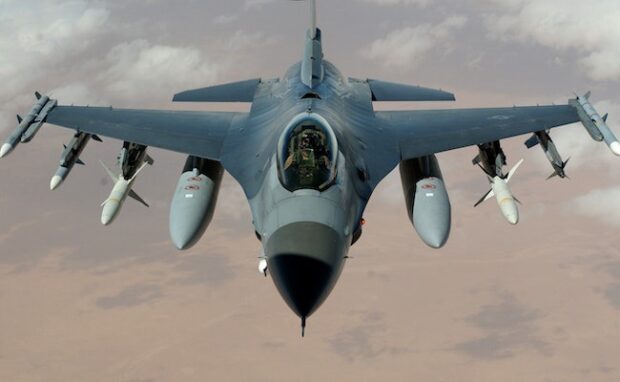Red Cross issues rules for civilian hackers during war
Picture a soldier or rebel, and you picture a grizzled person with a gun in hand. Nowadays, modern fighters are armed with keyboards firing keystrokes instead of bullets. They spread information and disrupt key enemy infrastructure connected to cyberspace. Hence, the International Red Cross issued rules to ensure combatants follow humanitarian law.
The Internet and other modern technologies have transformed the way we conflict with each other. You may believe these are merely science fiction, but they are a reality in today’s wars. Studying the Red Cross’ latest rules will help us understand another part of humanity that technology transformed. As a result, we can prepare for it when the need arises.
I will cover the International Committee of the Red Cross’ latest rules for civilian hackers during wars. Later, I will discuss the latest technologies that are transforming international conflicts.
What are the Red Cross rules for civilian hackers?
The International Red Cross reminds the public that “even wars have limits.” The organization cites the International Humanitarian Law (IHL) as an example but admits it doesn’t explicitly cover “hacking.”
However, it outlines obligations everyone must respect when conducting operations during armed conflict. “The most egregious violations of these rules constitute war crimes, which may be prosecuted nationally or internationally,” the ICRC says.
Hence, the Red Cross says state-armed groups and civilian hackers must respect these rules. Here are the eight rules for civilian hackers during wartime:
- Do not direct cyber attacks against civilian objects.
- Do not use malware or other tools or techniques that spread automatically and damage military objectives and civilian objects indiscriminately.
- When planning a cyber attack against a military objective, do everything feasible to avoid or minimize the effects your operation may have on civilians.
- Do not conduct any cyber operations against medical and humanitarian facilities.
- Do not conduct any cyber attack against objects indispensable to the survival of the population or that can release dangerous forces.
- Also, do not make threats of violence to spread terror among the civilian population.
- Do not incite violations of international humanitarian law.
- Comply with these rules even if the enemy does not.
You may also like: Aussie researchers test koala facial recognition
Why should civilian hackers follow these laws?
The International Committee of the Red Cross shared three reasons why civilian hackers are a growing concern. First, they can harm civilian populations, either directly or indirectly.
Experts emphasize their operations are not sophisticated enough to cause significant damage. However, they have targeted civilian structures like pharmacies, hospitals, and railway networks.
Second, civilian hackers may risk exposing themselves and other military operations. They perform clandestine operations under personas, but detection is still possible.
Once an armed party captures them, they may deem these people as directly participating in hostilities. Consequently, their computers and digital equipment may become military objectives.
You may also like: Japan unveils 15-foot transforming robot
The ICRC warns they may become targets of cyber operations, missiles, or bullets. Third, increased civilian involvement blurs distinctions between civilians and combatants. That makes it more difficult to safeguard innocent groups caught in conflict.
However, Ukraine and Russia did not agree with these rules. The IT Army of Ukraine told BBC News it did not attack medical targets, but “adhering to the rules can place one party at a disadvantage.”
On the other hand, the Russian cyber group Killnet had a more blunt response. “Why should I listen to the Red Cross,” said Killmilk, the online group’s leader.
What are the latest tech in armed conflicts?
We need rules like the ones from the Red Cross because the latest technologies are transforming war. For example, The US Air Force is testing an AI fighter jet.
It collaborated with the global security company Lockheed Martin to create the VISTA X-62A or Variable In-flight Simulation Test Aircraft. It can mimic almost any aircraft, such as the MQ-20 fighter drone and the F-16 fixed-wing fighter jet.
VISTA helps the US military test artificial intelligence systems before installing them on existing planes. Also, the Israeli military is using AI to facilitate battlefield planning.
You may also like: Does ChatGPT boost or reduce productivity?
Its Fire Factory organizes air strikes by “calculating appropriate munition loads, prioritizing targets, assigning them to aircraft and drones, and proposing a schedule.” In other words, it counts how many bombs and bullets an air raid requires.
Former Prime Minister Naftali Bennett explained the significance of the Israel AI system to Fox News Digital. “The future of defense systems and of the military will rely heavily on artificial intelligence,” he said.
“I’m talking about the analysis of massive data in intelligence. I’m talking about operating drones and other types of automatic and autonomous robots. Any country who seeks to be strong has to develop now an AI strategy,” the former head of state added.
Conclusion
The International Committee of the Red Cross issued eight rules civilian hackers must follow during wars. It says these guidelines promote International Humanitarian Law.
Whether combatants would follow these rules remains to be seen. Nevertheless, this development emphasizes the growing transformative power of technology.
Prepare by arming yourself with the latest digital tips and trends. Fortunately, Inquirer Tech offers updates regarding artificial intelligence, gadgets, apps, and more.


